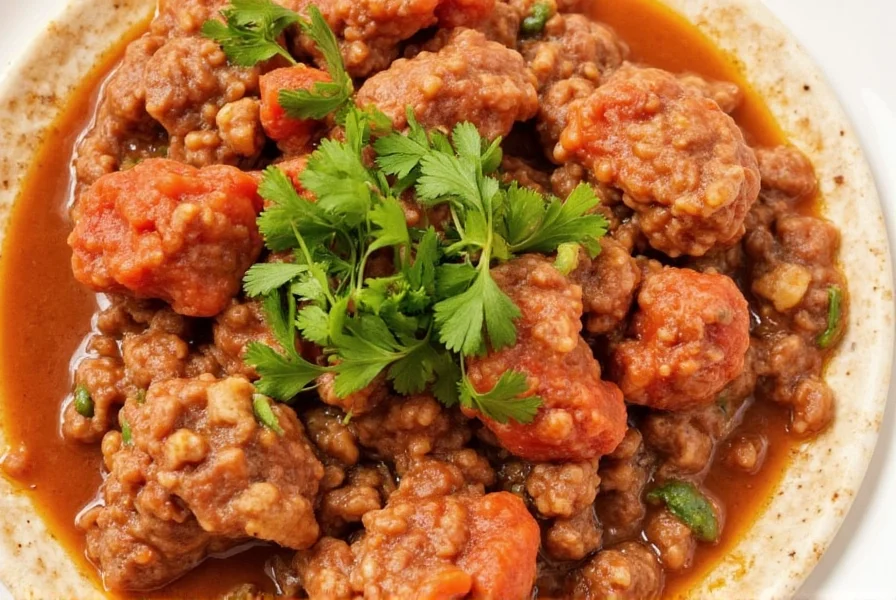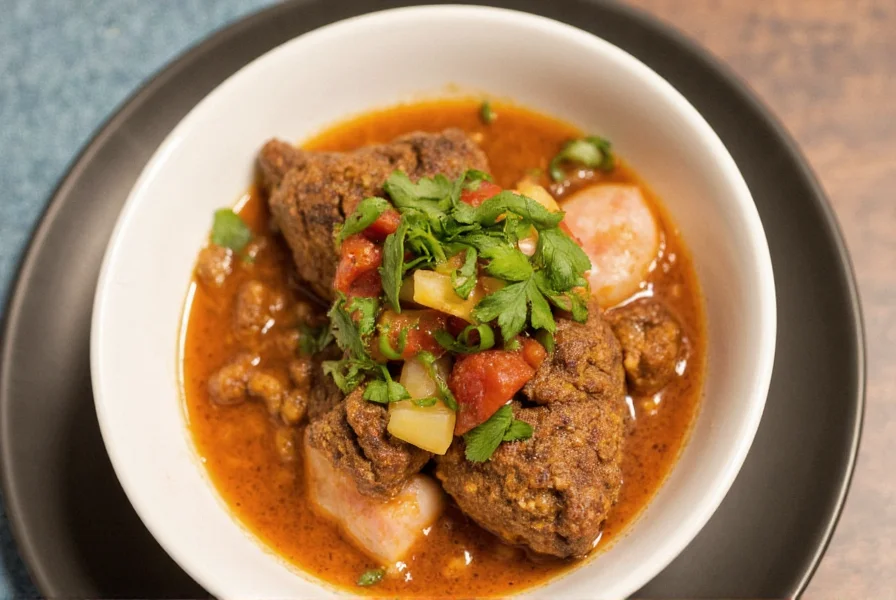Creole Season: Spice Up Your Life with Bold Flavors and Vibrant Traditions!
Welcome to the fiery, fragrant, and flavorful world of Creole season! Whether you're a seasoned chef or a curious home cook, Creole cuisine offers a unique blend of spices that can transform any dish into a vibrant celebration. In this blog post, we’ll explore what makes Creole seasoning so special, how it differs from its spicy cousin Cajun, and why now — during Creole season — is the perfect time to dive into these bold flavors.
Table of Contents
- What Is Creole Season?
- Creole vs. Cajun: What’s the Difference?
- Core Ingredients in Creole Seasoning
- How to Use Creole Seasoning Like a Pro
- Top 5 Creole Spice Blends You Need to Try
- Buying Guide: Choosing the Best Creole Seasoning for Your Needs
- Bringing Creole Season Into Your Kitchen
- Final Thoughts: Embrace the Flavor!
What Is Creole Season?
“Creole season” isn’t just a phrase thrown around by chefs looking for an extra punch of flavor — it’s a cultural celebration rooted in the culinary traditions of Louisiana, particularly New Orleans. While there isn’t a specific calendar month tied to Creole season (like holiday baking season), it refers more to a mindset and a moment in your cooking journey when you embrace the bold, rich, and complex flavors of Creole cuisine.
Cooking with Creole seasonings brings together a medley of herbs and spices that reflect the region’s diverse heritage — French, Spanish, African, German, and Native American influences all play a role in shaping what we now call Creole seasoning.
The Heart of Creole Cuisine
At its core, Creole cuisine is about community, celebration, and flavor. During Creole season, kitchens come alive with the aromas of simmering gumbos, sizzling jambalayas, and hearty étouffées. It's not just about spicing up food — it's about spicing up life itself.

Creole vs. Cajun: What’s the Difference?
This question comes up often, especially among spice enthusiasts who want to know which blend will deliver the right balance of heat and flavor. Let’s break it down:
| Feature | Creole Seasoning | Cajun Seasoning |
|---|---|---|
| Origin | New Orleans, Louisiana | Rural Southern Louisiana |
| Base Ingredients | Paprika, garlic powder, onion powder, oregano, thyme | Paprika, cayenne pepper, black pepper, garlic powder |
| Flavor Profile | Herby, aromatic, medium spice | Smoky, peppery, high spice |
| Typical Dishes | Gumbo, Jambalaya, Étouffée | Grilled meats, stews, blackened fish |
So if you’re craving complexity and depth with a touch of warmth, reach for Creole. If you’re after full-on fire, go Cajun.
Core Ingredients in Creole Seasoning
A classic Creole seasoning typically contains a harmonious mix of spices designed to enhance without overpowering. Here’s a breakdown of the usual suspects:
- Paprika – Adds color and mild sweetness
- Garlic Powder – Brings earthy umami
- Onion Powder – Sweet and savory backbone
- Oregano – Earthy, herbal notes
- Thyme – Floral and woody undertones
- Black Pepper – A touch of heat
- Cayenne (optional) – For those who like it spicier
You can easily make your own at home by mixing equal parts of each spice — or tweak it to suit your taste. Want more herbaceousness? Add more thyme. Want a smokier twist? Toss in smoked paprika!

How to Use Creole Seasoning Like a Pro
Cooking with Creole seasoning doesn’t have to be limited to jambalaya and gumbo. Get creative and expand your spice repertoire with these clever ideas:
1. Spice Up Your Seafood
Creole seasoning pairs beautifully with shrimp, crawfish, crab, and catfish. Sprinkle liberally before grilling or sautéing for a burst of flavor.
2. Boost Your Eggs
Add a pinch to scrambled eggs or frittatas for a savory morning kick.
3. Jazz Up Your Popcorn
Mix Creole seasoning with melted butter and drizzle over freshly popped popcorn. It’s a fun snack with a Southern twist.
4. Elevate Roasted Vegetables
Toss bell peppers, zucchini, eggplant, and onions with olive oil and Creole seasoning before roasting for a vibrant side dish.
5. Upgrade Your Marinades
Blend Creole seasoning with olive oil, lemon juice, and honey for a marinade that works wonders on chicken or tofu.

Top 5 Creole Spice Blends You Need to Try
If making your own isn't your thing, here are five highly rated Creole seasoning blends that bring convenience and flavor to your kitchen:
| Product Name | Key Features | Advantages | Best For |
|---|---|---|---|
| Old Bay Creole Seasoning | Classic blend with paprika, celery salt, and spices | Versatile; great for seafood and soups | Seafood lovers and traditionalists |
| Tony Chachere's Original Creole Seasoning | Signature red-orange blend with moderate heat | Balanced flavor profile | Everyday cooking and beginners |
| McCormick Gourmet Creole Seasoning | Premium ingredients with no fillers | Consistent quality and freshness | Professional chefs and serious home cooks |
| Zatarain’s Creole Seasoning | Perfect for rice dishes and gumbos | Easily integrates into one-pot meals | Comfort food fans and family dinners |
| Slap Ya Mama Cajun/Creole Seasoning | Available in mild to hot varieties | Customizable spice level | Heat-seekers and adventurous eaters |

Buying Guide: Choosing the Best Creole Seasoning for Your Needs
When shopping for Creole seasoning, consider the following factors to find the perfect fit for your palate and cooking style:
1. Intended Use
- Seafood & Shrimp Boils – Look for blends with celery salt, paprika, and mild heat
- Gumbo & Stews – Choose deeper, more complex blends with oregano and thyme
- Marinades & Rubs – Opt for fine-grained mixes that adhere well to meat or vegetables
2. Heat Level
- **Mild**: Ideal for kids or those who prefer flavor over fire
- **Medium**: Perfect for most home cooking applications
- **Hot**: For adventurous palates and spicy dish lovers
3. Ingredient Quality
- Check for artificial additives or preservatives
- Fresher blends retain better aroma and potency
4. Brand Reputation
- Stick with trusted brands unless experimenting with boutique options
- Some regional producers offer authentic Creole blends worth exploring
5. Packaging & Shelf Life
- Choose resealable containers or glass jars to preserve freshness
- Store away from light and moisture to extend shelf life
Bringing Creole Season Into Your Kitchen
Ready to embrace Creole season at home? Start small and let the flavors evolve. Try one new recipe per week and experiment with different spice blends to find your signature style.
Hosting a dinner party? Create a Creole-themed menu with:
- Cajun cornbread muffins
- Creole-seasoned grilled shrimp skewers
- Jambalaya rice bowls
- Spiced sweet potato fries
- And a refreshing hibiscus iced tea

Final Thoughts: Embrace the Flavor!
Creole season is more than just a cooking technique — it's a lifestyle, a celebration of culture, and a tribute to bold, beautiful flavors. Whether you're stirring a pot of gumbo on a rainy afternoon or grilling summer veggies with a hint of spice, Creole seasoning brings warmth, depth, and joy to every bite.
So go ahead — dust off that spice rack, grab your favorite Creole blend, and turn up the heat in your kitchen. The heart of Louisiana is calling…










 浙公网安备
33010002000092号
浙公网安备
33010002000092号 浙B2-20120091-4
浙B2-20120091-4